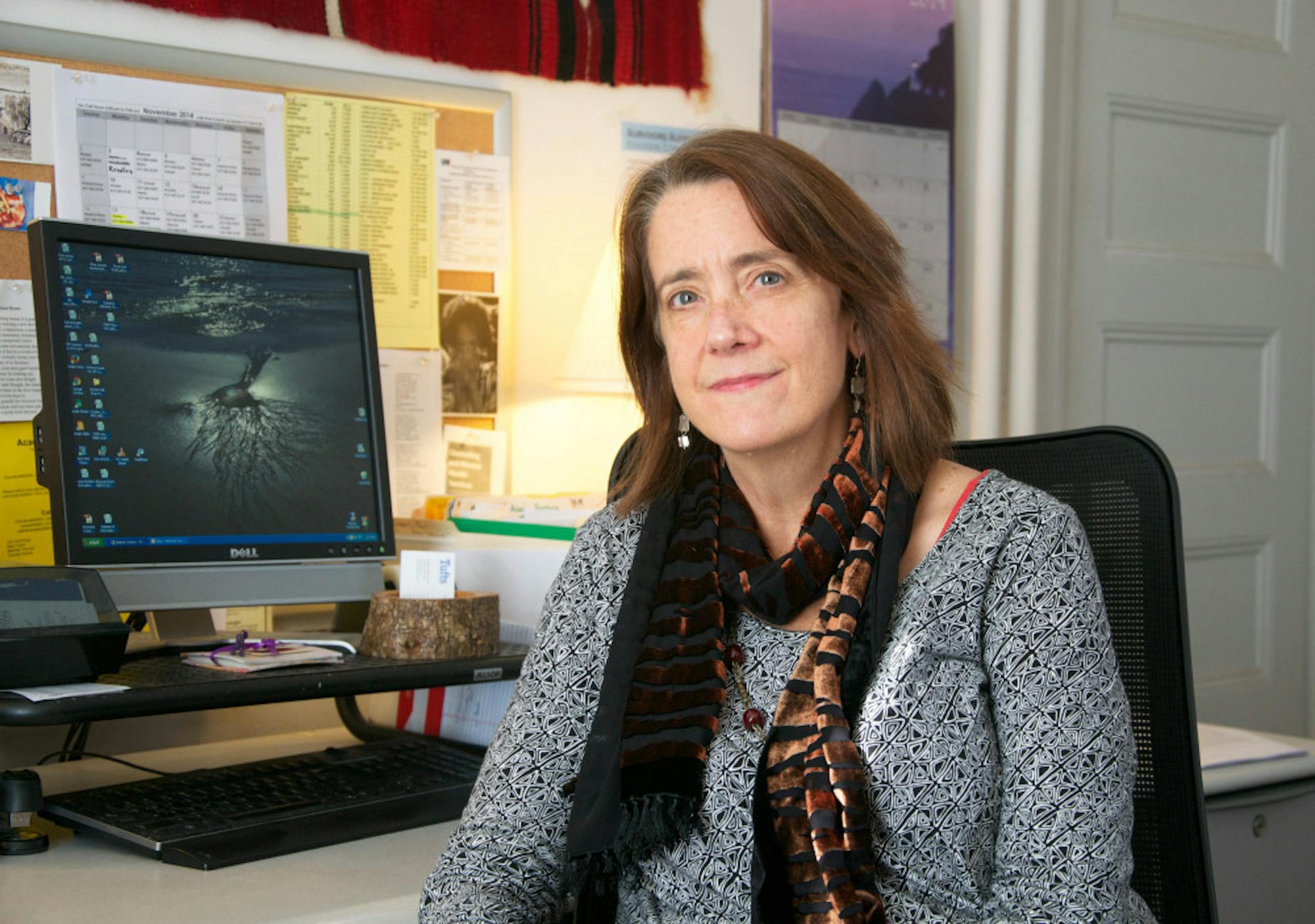Over the last three years, Tufts’ Counseling and Mental Health Service (CMHS) has been slowly implementing the Interactive Screening Program (ISP), an initiative lead by the American Foundation for Suicide Prevention, (AFSP).
While the AFSP is a private, national organization geared at reducing suicide rates throughout various populations within the nation, many universities, including Tufts, have recently adopted its screening methodology in order to reach out to a broader base of people. According to Dr. Marilyn Downs, who heads the screening program at Tufts, CMHS has been receiving funding from the AFSP in order to accomplish this.
“[The program is a way of providing] this active reaching-out effort, a kind of opportunity to check in, thinking that we may catch some people who are maybe flying under the radar,” Downs said.
According to Downs, the program consists of an electronic invitation to participate in a "self-check" questionnaire that contains questions pertaining to mental health and well-being. Should students choose to complete the questionnaire, they can then elect whether or not to confidentially send the survey to CMHS to review, at which point Counselor Dr. John Rosario-Perez composes responses tailored to each anonymous student’s specific survey results.
Downs is faced with the task of contemplating the question of the program's efficacy. Tufts’ funding for the ISP has come from the state chapter of the AFSP, which covered three years’ worth of implementation in order to promote the program on campuses nationwide, she said. This is the final year that AFSP will fund the program at Tufts.
“I’m not sure exactly if we would have piloted [the program] without that incentive," Downs said. "At the end of this year, I think I will have a chance to look at our three years of data and assess … whether it’s been effective and whether we will continue to implement the program going forward, and that is going to be determined by how effective we think it is in essentially engaging students … relative to cost."
According to Downs, students are randomly selected to receive invitations throughout the year. When the program was piloted in the spring of 2012, the invitation was sent to 50 undergraduates every two weeks. Since then, the program's reach has greatly expanded.
“This year we are going to sample about 2,100 undergraduates," Downs said. "Over the course of the academic year, 2,100 email invitations will go out ... we are sending out 175 invitations every two weeks."
The survey invitations are sent out in biweekly stages in order to reach out to students at various points in the academic year. According to Downs, sampling the whole student body at once would likely result in a dramatic influx in the number of students seeking counseling and mental health services, which the office might not be able to handle.
Downs explained that since 90 percent of people who die by suicide have a probable mental illness at the time of death, the AFSP bases much of its survey's procedure on the broad association between suicide and mental illness. Downs emphasized the importance of detecting potential issues early and making resources available to help cope with them known, particularly in student populations.
“In a college student population, suicide is the second-leading cause of death … and like the population in general, we know that the vast majority of college students nationally who die by suicide have not been getting mental health services, so we are really looking to reduce that gap," Downs said. "And so the idea of the Interactive Screening Program specifically is to see if we can reach out to students who might be struggling with depression or another mental health-related problem and for whatever reason are not coming in to get some sort of help."
Because of the anonymous nature of the ISP, explained Downs, the online surveys could act as a way for students with inhibitions about seeking counseling services to begin utilizing those resources. The online method of engagement removes some of the intimidation factor that some students experience.
While the program is still relatively unknown to most undergraduates, some students, like first-year Melissa Kain, worry about whether the anonymity of the program might actually impede students from receiving the help they need.
“Although confidentiality is obviously crucial, in these situations, [not knowing the student’s identity] could create a barrier between counseling services and the people filling out the surveys, because it gives counseling services the information they need, but it doesn’t necessarily give them the [identities of the] specific people that need help," Kain said.
However, Kain also acknowledged the importance of having resources like the ISP available and accessible to students.
"I do think that recognizing mental health is important, because I think that it is [often overlooked] in today’s society, and not very well understood in some cases," she said.
Other students, such as first-year Ari Gizzi, believe the program will bring about a marked improvement in the community, and that it could alleviate some of the obstacles that prevent people from seeking professional help.
“[I think the program is valuable], as someone who has a history of mental illness in her family," Gizzi said. "My brother had to drop out of college his freshman year because he was so depressed. It is so important to catch things like these, because if my brother’s issues had been caught earlier, it could have been easier for him to deal with his issues."
Gizzi also emphasized the importance of the program in reducing the stigma against mental illness.
"I think there is also a lot of stigma about mental issues," she said. "A lot of people with mental illness are ostracized by society, so it is really important to help them and give them resources they need."
CMHS implements new screening program for suicide prevention

Marilyn Downs is the head of the Interactive Screening Program and Director of Outreach for Tufts' Counseling and Mental Health Services.





